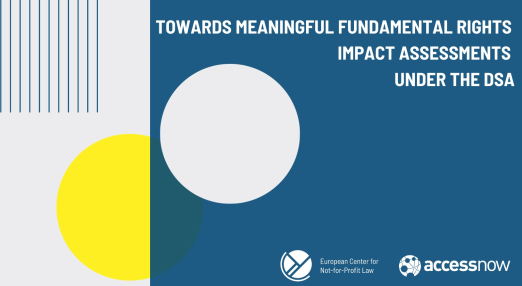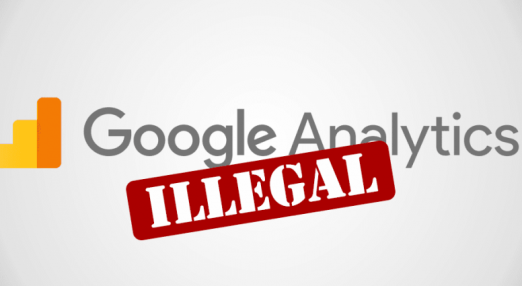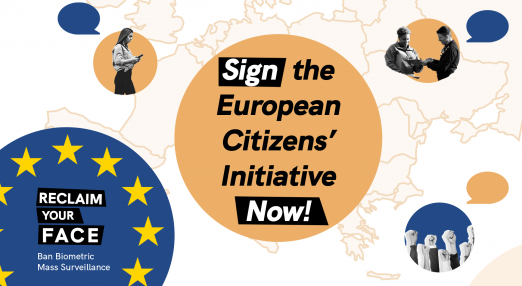Filter by...
-

How tech corporations like Google, Meta and Amazon should assess impacts on our rights
A new policy paper by EDRi members ECNL and Access Now outlines key recommendations on how to make fundamental rights impact assessments meaningful under the European Union's Digital Services Act (DSA).
Read more
-

Foreign authorities are banning Google and Microsoft services from schools, the Czech Republic is floundering
Jan Cibulka, a journalist for iROZHLAS and member of the Big Brother Awards CZ Jury, organised by EDRi member Iuridicum Remedium, has investigated how Czech authorities and schools are approaching the protection of privacy when using distance learning tools. Such tools send sensitive information overseas, where US law gives intelligence agencies access to it. The tools do not guarantee that children's private chats will not be accessed by, for example, teachers. While the first regional governments in Europe are developing safer alternatives, in the Czech Republic the risk assessment remains up to individual schools. In practice, they have little choice.
Read more
-

Does Google accuse you of child abuse? Impossible! Right?
The legislator in Europe is working on a proposal that could force companies to scan all messages we exchange for child sexual abuse material. The goal is noble but it can very easily go wrong. And if things go wrong, you might suddenly be accused of sexually abusing children.
Read more
-

CNIL orders three controllers to comply with GDPR after decision that using Google Analytics is illegal
Only weeks after the groundbreaking decision by the Austrian Data Protection Authority that the continuous use of Google Analytics violates the GDPR, the French Data Protection Authority (CNIL) ordered three French websites to comply with the GDPR. All these decisions are based on noyb's 101 model complaints which were filed after the Court of Justice ruling invalidating Privacy Shield. noyb expects similar decisions by the other authorities.
Read more
-

Austrian DSB: EU-US data transfers to Google Analytics illegal
In a groundbreaking decision, the Austrian Data Protection Authority ("Datenschutzbehörde" or "DSB") has decided on a model case by noyb that the continuous use of Google Analytics violates the GDPR.
Read more
-

Move fast and break Big Tech’s power
The surveillance-based business model of the dominant technology companies is based on extracting as much personal information and profiling as possible to target individuals, on- and offline. Over time, Big Tech corporations build a frighteningly detailed picture about billions of individuals—and that knowledge directly translates into (market) power.
Read more
-

All hands on deck: What the European Parliament should do about the DSA
After the European Commission’s proposal for a Digital Services Act (DSA) in December 2020, no less than seven committees in the European Parliament are now drafting their reports and opinions on the DSA. In parallel, member states are deliberating about the Council’s position, too. Yet, while the Commission has carefully tried to modernise the ageing rules of the E-Commerce Directive and make them fit for the platform economy, several of the committees’ draft reports propose—deliberately or not—to turn the DSA into a dystopian fundamental rights nightmare.
Read more
-

FLoC: Google’s new means of following you across the web
If you browse the web without an ad blocker, you will have noticed that the ads you see tend to follow you around. Have you been looking around for a new pair of shoes? Be prepared to see more ads for shoes on completely unrelated websites. This advertising technique is called "behavioural retargeting" and is built on recording your web history in a central place, then using that information to select ads that advertisers expect you are more likely to react to. In this article. EDRi's member epicenter.works sheds some light on Google's new way of tracking users across the web.
Read more
-

Four measures to limit the dominance of platforms like YouTube and Facebook
For our public debate, we are far too dependent on the whims of dominant companies such as Google and Facebook. The time is nigh for politicians to step in, and here are four measures they should take.
Read more
-

Buy a phone, get a tracker: unauthorized tracking code illegally installed on Android phones
EDRi's member noyb launched further action against Google’s AAID (Android Advertising Identifier), following similar complaints against Apple’s IDFA. The somewhat hidden ID allows Google and all apps on the phone to track a user and combine information about online and mobile behaviour. While these trackers clearly require the users’ consent (as known from “cookie banners”), Google neglects this legal requirement. noyb therefore filed a complaint against Google’s tracking code AAID.
Read more
-

Google’s FLoC Is a Terrible Idea
Google is leading the charge to replace third-party cookies with a new suite of technologies to target ads on the Web. And some of its proposals show that it hasn’t learned the right lessons from the ongoing backlash to the surveillance business model. In this post, EDRi's member Electronic Frontier Foundation (EFF) will focus on one of those proposals, Federated Learning of Cohorts (FLoC), which is perhaps the most ambitious—and potentially the most harmful.
Read more
-

ECI: putting people’s voices before corporate greed
On 17 February 2021, EDRi with a coalition of 40 human rights and social justice groups launched a unique, officially-recognised EU petition, called a “European Citizens’ Initiative” (ECI). Here, we explain why and how this ECI is a powerful tool for our Reclaim Your Face campaign that aims to ban biometric mass surveillance, as well as for our wider European advocacy against harmful uses of artificial intelligence-based technologies.
Read more
